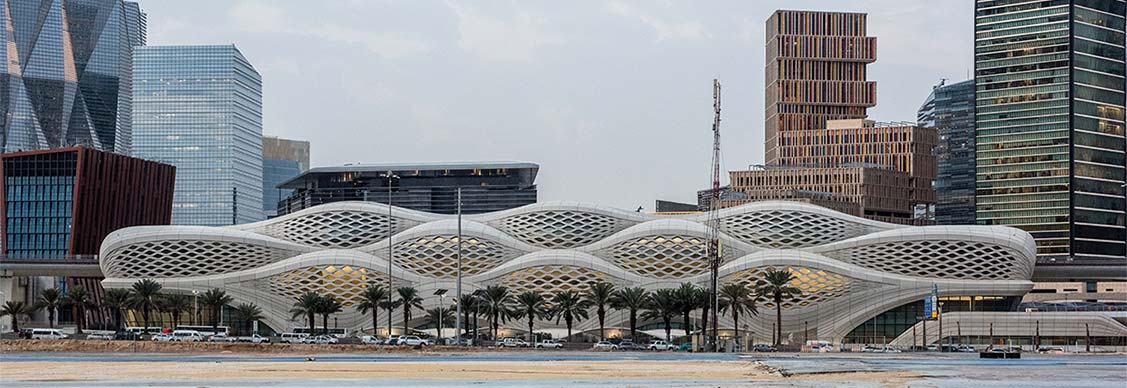KSA megaprojects: Engaging private sector solutions
Insights by Salah Sahyoun, Senior Director, Deputy Head of Consulting – MEA at JLL
From challenges to solutions: Engaging the private sector in KSA’s megaprojects
The Kingdom of Saudi Arabia (KSA) is undergoing a monumental transformation. Through ambitious infrastructure projects known as megaprojects, it seeks to diversify its economy and reduce its reliance on oil. This ambitious vision, outlined in the Kingdom's Vision 2030, aims to position the country as a global investment powerhouse and a tourism hub. However, realizing this vision comes with some challenges that must be addressed to ensure the success of these megaprojects.
The private sector plays a pivotal role as it brings much-needed capital, expertise, and innovation to complement the Government's efforts. By partnering with the private sector, the KSA can accelerate project development, reduce costs and enhance efficiency.
Key challenges facing the private sector
One of the primary obstacles facing the private sector is the soaring construction cost. The COVID-19 pandemic, geopolitical conflicts and logistical bottlenecks have exacerbated global supply chain disruptions, leading to increased material prices and project delays. These rising costs make megaprojects less appealing to investors, as the potential returns may not justify the financial outlay.
Land costs pose another significant challenge. Large-scale developments require substantial investments in land acquisition, which can deter private sector participation. Developers may hesitate to commit substantial funds without guaranteed returns, limiting new project initiatives.
Financial constraints further complicate matters. Megaprojects require substantial financing, which can be difficult to secure due to high interest rates and a nascent non-bank financing sector. Investors often prefer land banking as a less risky investment strategy, diverting funds away from megaprojects.
Consumer affordability issues also affect the market. Many citizens struggle to afford housing, which can reduce demand for new residential developments. This can impact the viability of private sector projects and limit their profitability.
Looking for more insights? Never miss an update.
The latest news, insights and opportunities from global commercial real estate markets straight to your inbox.
The shortfall in foreign direct investment (FDI) is another obstacle. The first half of 2024 saw only $9.7 billion in FDI, compared to a target of $29 billion by year-end set by the KSA. This shortfall in FDI can hinder the recruitment of regional and international developers essential for megaproject success. Regulatory challenges add another layer of complexity to attracting FDI. Frequent regulation changes and a need for more transparency in permitting processes can create uncertainty for investors and deter potential engagement.
Further challenges include unclear design codes, labor shortages, and sustainability concerns, all of which require strategic solutions to ensure successful private sector involvement in megaprojects.
Government initiatives: Creating a conducive environment
The KSA Government can implement various strategic initiatives to address these challenges and encourage private sector participation. These include self-development initiatives to demonstrate viability, enhanced access to financing through collaborative efforts, joint ventures and public-private partnerships (PPPs), regulatory innovations, incentives, public relations campaigns, a one-stop-shop for approvals, focus on improving the ease of doing business scoring, allowing foreign ownership, and leveraging the Private Sector Participation Law.
Investment Opportunities
To attract private investment in megaprojects, the Government can initiate initial phases in key projects to demonstrate their potential benefits and viability. By showcasing the expected returns and benefits of megaprojects, the private sector, which will be encouraged by seeing a critical mass already built, will be drawn into those projects.
Facilitating collaborations between private investors and financial institutions can also ease funding constraints. By encouraging the establishment of new financing companies and partnerships with banks, the Government can streamline funding processes and ensure smooth financial flows.
Joint ventures and PPPs are crucial in mitigating investment risks, enhancing capital rationing and fostering innovation. Sharing financial burdens and expertise allows private entities to leverage the financial strength and creditworthiness of the public sector to secure better financing terms and minimize their exposure to uncertainties while also ensuring that potential budgetary deficits are funded indirectly via private sector exposure to such projects.
Public relations campaigns can raise awareness about the opportunities offered by megaprojects and attract potential investors. Roadshows will also improve the visibility of the project's vision, masterplans, and design codes.
Regulatory innovations, such as introducing regulations that support modern construction processes, can help reduce costs and improve efficiency. Additionally, creating a favorable investment climate by establishing tax incentives and simplifying regulations can attract more investors. A one-stop shop for approvals can significantly enhance the ease of doing business scoring in the Kingdom.
Focusing on improving the ease of doing business, such as through the Economic Cities initiative, can make the KSA more attractive to investors. Allowing foreign ownership in specific sectors can also attract international investment and expertise.
The Private Sector Participation Law, enacted in 2021, provides a legal framework for domestic and foreign investors to participate in privatization and PPP initiatives. This law aims to promote greater private sector involvement through more transparent regulatory controls.
The path forward
Once completed, many of the facilities and infrastructure developed through these megaprojects will be managed by private companies with long-term operational contracts. This PPP model will ensure efficient operation and maintenance and provide opportunities for the private sector to contribute to the KSA's economic growth and diversification. By attracting private sector investment and expertise, the KSA can accelerate the realization of its Vision 2030 and position itself as a global leader in sustainable development and economic prosperity.
Addressing these challenges will require a sustained and coordinated effort from both the government and the private sector. By working together, they can create a sustainable and prosperous future for the KSA.
Learn how JLL’s Consulting expertise can transform your next project.
Contact Salah Sahyoun
Senior Director - Strategic ConsultingWhat’s your investment ambition?
Uncover opportunities and capital sources all over the world and discover how we can help you achieve your investment goals.




